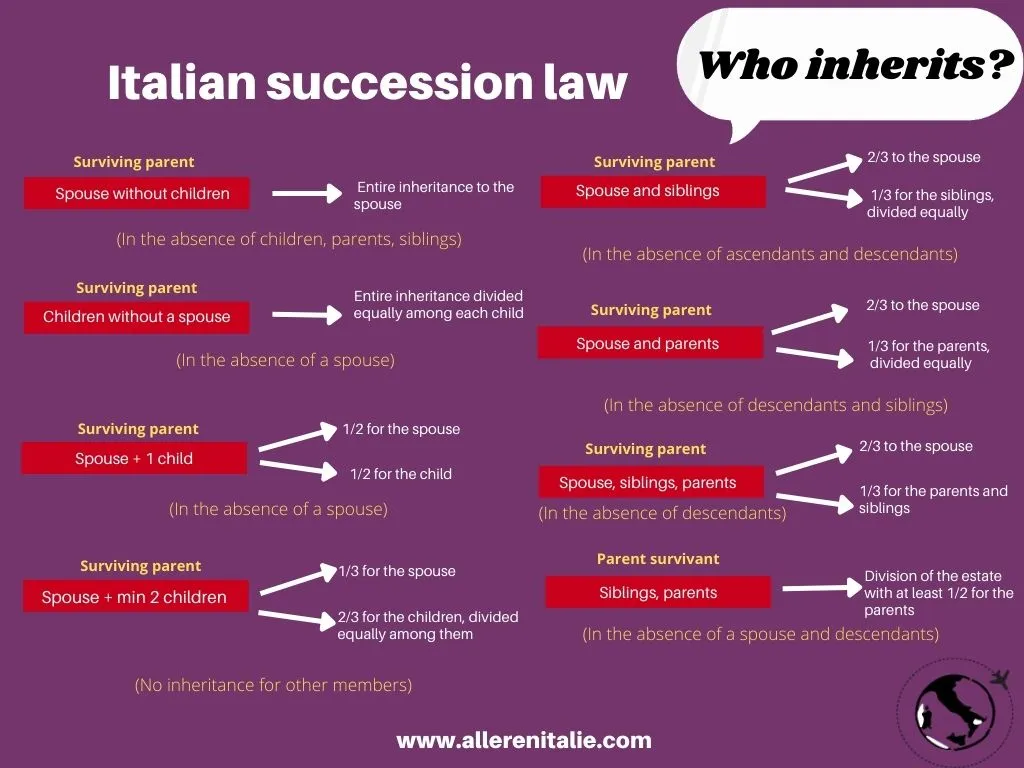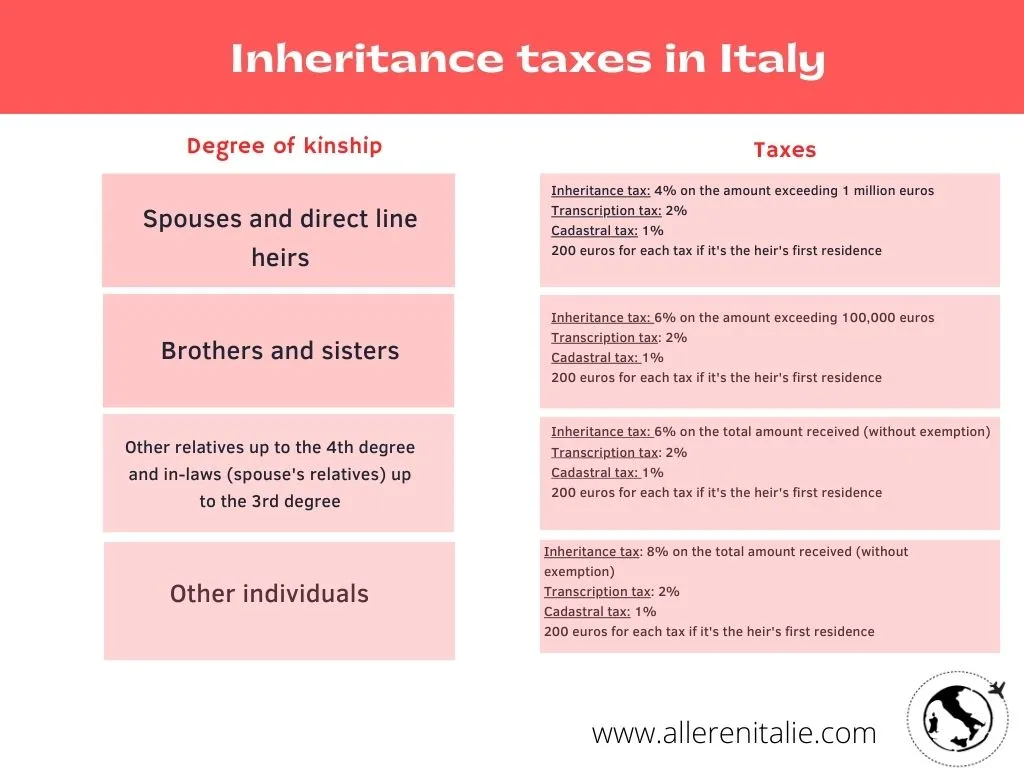The topic of inheritances in Italy is one that affects many families who have a very strong connection with the country. Expatriation to Italy, buying a vacation home in Italy: the reasons can be manifold. In this article, we will try to provide you with the essential elements to help you understand the stakes of a cross-border succession between 2 countries.
- Inheritance law in Italy
- The testament in Italy
- Who handles inheritances in Italy?
- Inheritance tax in Italy
- Inheritance in Italy, division
- How to handle an inheritance in Italy?
- Taxable assets in inheritances in Italy
Inheritance law in Italy
Italian inheritance law applies as soon as the individual in question has established their residence in Italy before death and owns real estate in Italy.
Creating a will is not mandatory in Italy, but it is very useful because, in the absence of a written document, the order of succession rights is established by the Italian state (Legitimate succession) as follows:
The testament in Italy
If one owns a house in Italy, it means that the succession will be subject to Italian law, and during the division, the Italian notary can only rely on a will written in Italian.
In the absence of an Italian will, the english will must be translated into Italian, which may incur additional costs.
It is also possible to draft a will oneself, which is called a holographic will, meaning it will be written, dated, and signed by the hand of its author.
For added security, the individual may keep it in a safe place, entrust it to a trusted person, or directly to the notary.
Who handles inheritances in Italy?
To establish a testament in Italy, you simply need to visit a bilingual English-Italian notary.
The cost of a will in Italy can vary from 300 euros to 1500 euros, depending on the value of the estate.
Inheritance tax in Italy
There is an inheritance tax in Italy that is determined by the degree of kinship with the deceased, as well as the transcription tax at the mortgage registry and the cadastral tax that must be paid by each of the heirs.
Inheritance in Italy, division
Inheritance in Italy is either governed by a will or by Italian succession law. But what happens if we want to exclude someone from the inheritance, if the spouses are not married, or if there’s a divorce? Here are some specific cases:
Reserved heirs
In Italy, reserved heirs are individuals who cannot be excluded from the will, namely the deceased’s children and their descendants. If there are no children, the surviving spouse becomes the reserved heir.
Cases of separation or divorce
A married or separated couple has the same rights, meaning a separated person does not lose their inheritance rights, unlike a divorced person who loses all rights.
Inheritance for unmarried partners
Cohabiting partners are not considered under Italian inheritance law. In the absence of a will, unmarried partners have no rights to the inheritance of the deceased partner.
How to handle an inheritance in Italy?
To successfully handle an inheritance in Italy, it’s important to gather all documentation related to the identity, family situation, and assets of the deceased. For example: the residency certificate, bank statements, death certificate, property deeds for real estate and land, the deceased’s family record book, and the affidavit concerning the family situation of the deceased. This affidavit is a public document in which a deponent makes a declaration in the presence of witnesses to identify the various family members involved in the inheritance rights.
Then, within one year after the parent’s death, you must file a succession declaration with the Italian authorities (Agenzia delle Entrate), unless the value of the assets is less than 100,000 euros and does not include real estate. In this case, filing the succession declaration is not necessary.
Finally, the succession process concludes with the payment of inheritance taxes by the heirs.
Taxable assets in inheritances in Italy
Italian law, in inheritance procedures, provides for the taxation of real estate (houses, shops, buildings), agricultural or building land, movable property, investments, bank accounts, and in some cases, businesses.
Now you know all about inheritances in Italy!

